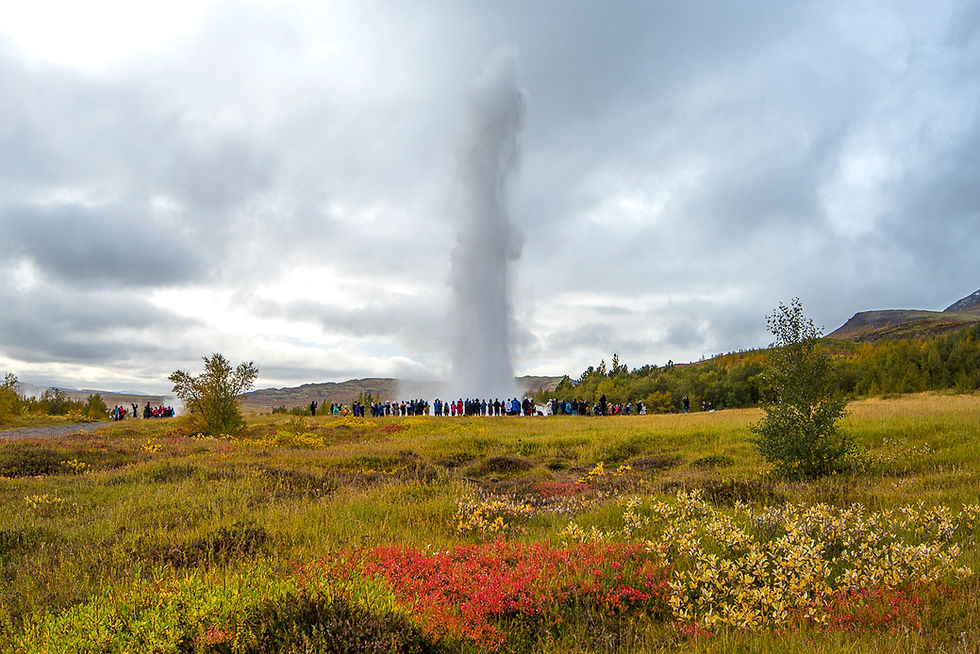Geysir and Strokkur Hot Springs self-drive guide and information
- Einar Páll Svavarsson

- May 27, 2025
- 3 min read

The Geysir hot spring is an exciting part of the geothermal field in Haukadalur valley, South Iceland, conveniently located near the entrance to the Kjalvegur road leading to the Highland. This remarkable hot spring has been bubbling with activity for an impressive 10,000 years! Although the first recorded mentions of the hot springs in Haukadalur only go back to 1294, Geysir has been a fascinating phenomenon. Known for its unpredictable nature, Geysir sometimes surprises visitors with its eruptions and sometimes takes a break. Its earliest mention was sparked by dramatic changes in the landscape after a powerful earthquake. Since then, the seismic activity has been meticulously documented, and the geothermal field in Haukadalur is under constant watch, adding to the allure of this natural wonder!

How do you drive to Geysir?

The whole drive to Geysir is 107 kilometers, 67 miles. To reach Geysir, you must take road nr. 1, the main road in Iceland, from Reykjavík to Mosfellsbær town. Once you pass through the town, turn east to the Morse Mofellsheiði on road nr. 36. After driving through Þingvellir National Park, continue on road nr. 365 until you reach Laugarvatn small hamlet. From there, continue on road nr. 37 until you reach the junction of road nr. 35, which will take you to Geysir. You can find the directions on the map above. The whole journey takes less than two hours without any stops.
Connections between earthquakes and hot spring eruptions

Geysir, a famous geyser in Iceland, tends to become more active after earthquakes. Although it had been dormant for a long time, it started erupting regularly again after the earthquake of 1896. At that time, it erupted several times a day with bursts of up to 60 meters high and lasting for an hour. In 1910, it was active every 30 minutes. However, its periods of activity usually last for only a few months and after the 1910 eruption, it appeared as if Geysir had become inactive once again.
Geysir has a history of shutting off and turning on at its own convenience

In 1935, a channel was created through the silica rim surrounding Geysir's vent. This channel caused the water level to decrease, resulting in a restoration of Geysir's activity. However, the channel soon became blocked with silica, and the eruptions of Geysir almost completely ceased. In 1981, the channel was cleared once again. By this time, those in charge of the hot spring realized that Geysir could be stimulated by adding soap to it on special occasions. However, due to environmental concerns, this method was eventually abandoned. The last time Geysir erupted was after the Icelandic National Day earthquakes in 2000. It shot boiling water up to 122 meters high, which made it the highest-known geyser eruption in history.
Strokkur has taken over the responsibility of splashing boiling water from the hot spring

Today the other impressive geyser Strokkur has taken the role and responsibility of erupting every ten to fifteen minutes every day and every night of the year. It is one of the most remarkable creatures of mother nature in Iceland, almost like it was designed for tourism. It barely fails or disappoints its hundred of thousands of visitors every year.
Location of Geysir and Strokkur on the map of Iceland




Comments